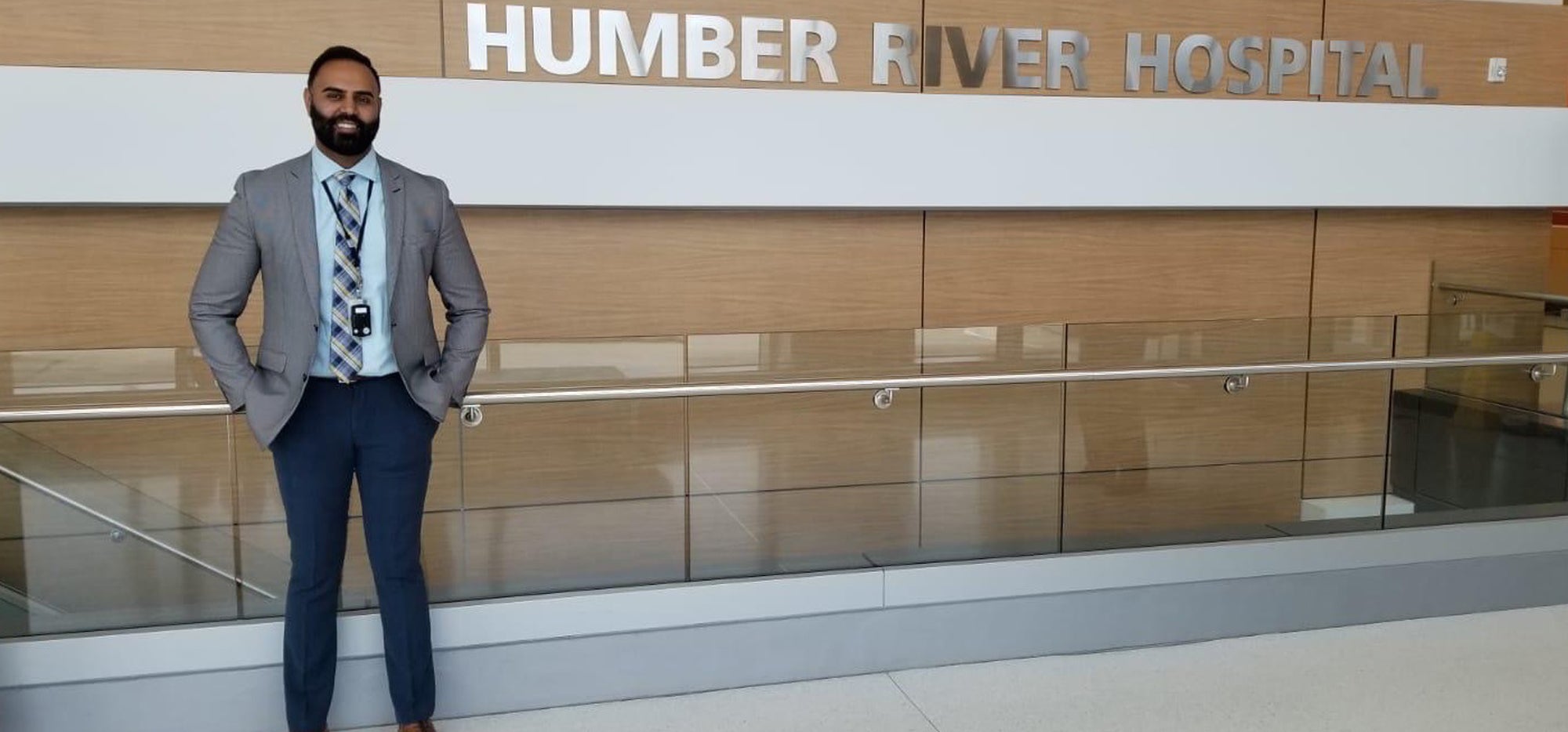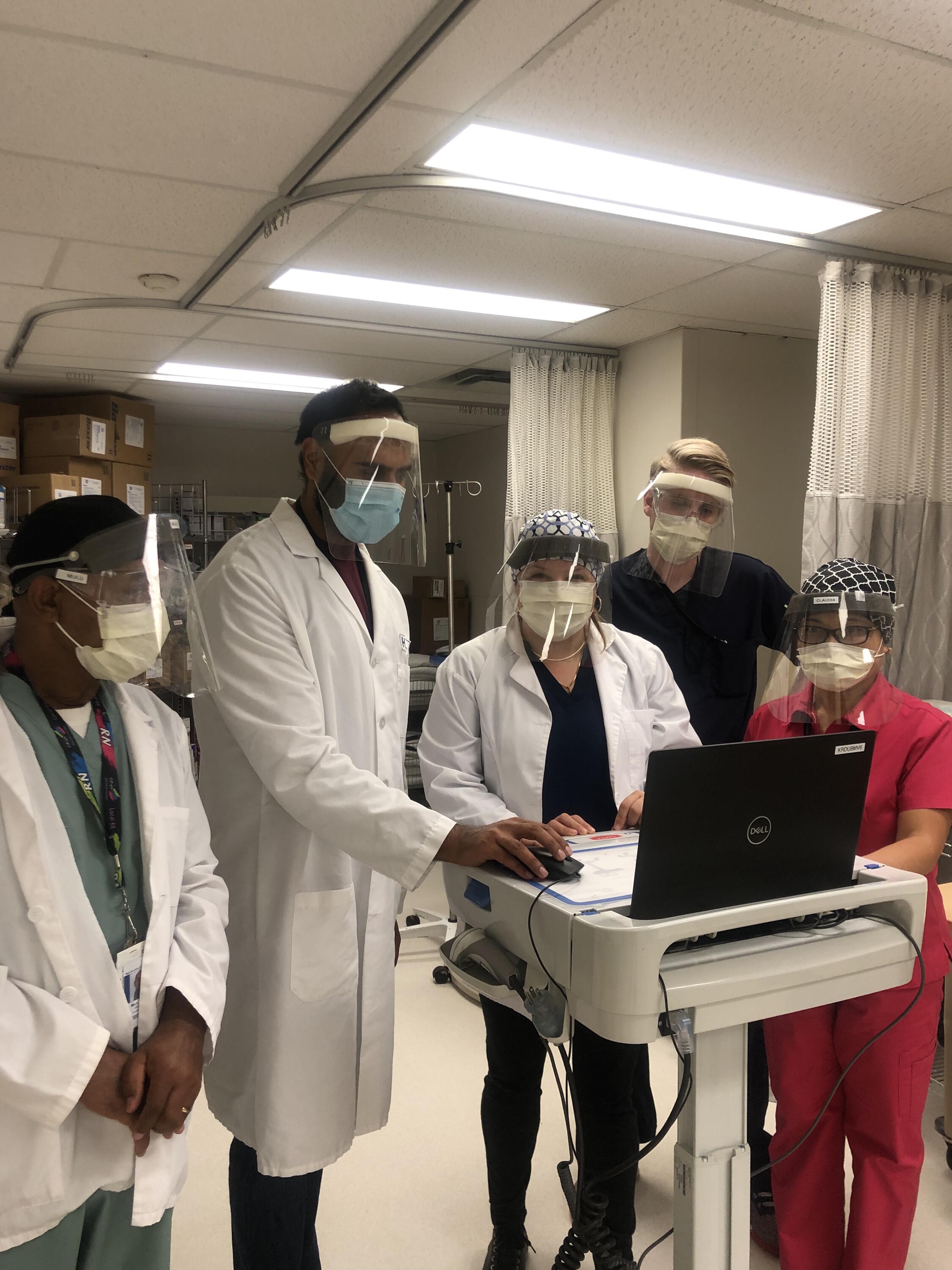
Alum Gaganpal Mutti talks inpatient and outpatient care at a Toronto hospital

Gaganpal Mutti (Rx2017) is the kind of pharmacist who likes to get to know his patients. Hearing their stories and easing their concerns is what makes his days at the Humber River Hospital in Toronto rewarding.
But COVID-19 has shifted what health care looks like in hospitals across Canada, and Humber River is no exception. New rules to ensure safety and prevent the spread of the virus means Gaganpal is now finding creative ways to provide empathetic patient care.
“My role is typically split. On inpatient units, I provide patient-centered care to optimize safe, effective and appropriate drug therapy. On the outpatient side, I work in the renal program, providing care to patients requiring dialysis treatment or patients with chronic kidney disease at our Multi-Care Kidney Clinic,” he says.
Before COVID-19, Gaganpal worked in a variety of inpatient areas including the intensive care unit (ICU) where he joined intensivists, nurses and other health-care professionals to provide care for patients at their bedside. This shifted as access to patient rooms became strictly controlled to prevent direct patient contact and the spread of the virus.
Personal protective equipment (PPE) is essential in high-risk rooms. In some parts of the hospital, pharmacists do not see patients in person to conserve PPE; instead, they provide care and counseling through other means such as phone and video conferencing. For some patients, like those with cognitive or fine motor skill impairments, these forms of communication aren’t ideal and pharmacists wear the appropriate PPE to directly work with the patient.

“As isolation measures are put in place, it’s difficult for the patients who miss face-to-face interaction,” Gaganpal says. “It’s hard on health care providers as well, watching patients and their caregivers go through this in a time when families are not allowed to visit their loved ones in person.”
On the outpatient side, Gaganpal’s clinical role as a renal pharmacist has not changed. However, the way his team provides care has. Typically, Gaganpal would interact with patients and provide medication counselling and recommendations to the interprofessional team in person.
“Hemodialysis patients often have very complex care needs,” he explains. “The multidisciplinary team works collaboratively to ensure patients receive exceptional care. Since we see these patients three times a week for dialysis, we get to know them well and develop trust.”
Hemodialysis is a lifeline for the patient’s health, so coming to the hospital for treatment is necessary. Safety measures were put in place to ensure physical distancing and safety within the dialysis unit.
“Although we are working further apart in the hospital due to physical distancing measures, we are now collaborating more strongly with community pharmacists. Prior to COVID-19, patients would come to the Multi-Care Clinic with family members or bring their medications and have us provide a medication history. Since there are restrictions for clinic patients entering the hospital, we are working more closely with community pharmacies to provide this care instead.”
The days are demanding and full, however Gaganpal is part of a strong team and that helps him persevere.
Everyone has united to provide the best care for patients. Although there have been changes to the working environment and the way we work, we want to ensure that there are no changes to the quality of patient care. The fear and uncertainty of the pandemic brought us closer together and we’ve all bonded as professionals, colleagues and friends to get through this.